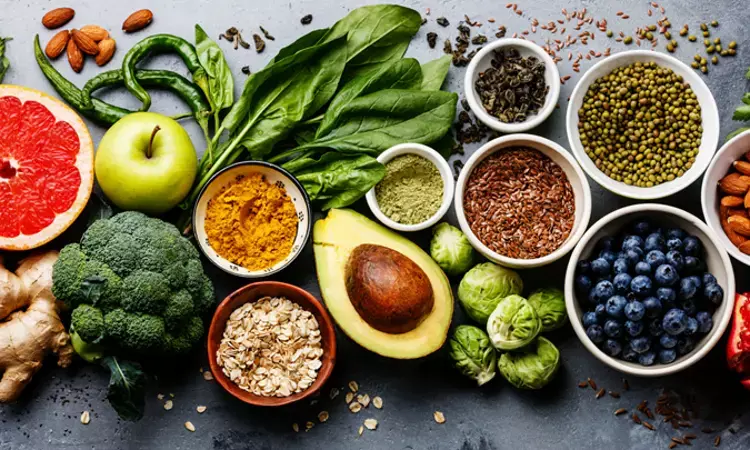- Home
- Medical news & Guidelines
- Anesthesiology
- Cardiology and CTVS
- Critical Care
- Dentistry
- Dermatology
- Diabetes and Endocrinology
- ENT
- Gastroenterology
- Medicine
- Nephrology
- Neurology
- Obstretics-Gynaecology
- Oncology
- Ophthalmology
- Orthopaedics
- Pediatrics-Neonatology
- Psychiatry
- Pulmonology
- Radiology
- Surgery
- Urology
- Laboratory Medicine
- Diet
- Nursing
- Paramedical
- Physiotherapy
- Health news
- Fact Check
- Bone Health Fact Check
- Brain Health Fact Check
- Cancer Related Fact Check
- Child Care Fact Check
- Dental and oral health fact check
- Diabetes and metabolic health fact check
- Diet and Nutrition Fact Check
- Eye and ENT Care Fact Check
- Fitness fact check
- Gut health fact check
- Heart health fact check
- Kidney health fact check
- Medical education fact check
- Men's health fact check
- Respiratory fact check
- Skin and hair care fact check
- Vaccine and Immunization fact check
- Women's health fact check
- AYUSH
- State News
- Andaman and Nicobar Islands
- Andhra Pradesh
- Arunachal Pradesh
- Assam
- Bihar
- Chandigarh
- Chattisgarh
- Dadra and Nagar Haveli
- Daman and Diu
- Delhi
- Goa
- Gujarat
- Haryana
- Himachal Pradesh
- Jammu & Kashmir
- Jharkhand
- Karnataka
- Kerala
- Ladakh
- Lakshadweep
- Madhya Pradesh
- Maharashtra
- Manipur
- Meghalaya
- Mizoram
- Nagaland
- Odisha
- Puducherry
- Punjab
- Rajasthan
- Sikkim
- Tamil Nadu
- Telangana
- Tripura
- Uttar Pradesh
- Uttrakhand
- West Bengal
- Medical Education
- Industry
Dietary consumption of Antioxidants reduces risk of H. Pylori Infection

A new study published in BMC Gastroenterology suggests that Helicobacter pylori (H. pylori) infection may be less likely if nutrients with antioxidant properties are consumed in the right amounts.
Gram-negative, microaerophilic, spiral-shaped Helicobacter pylori replicates in the stomach epithelial layer and spreads either directly (oral-oral) or indirectly (fecal-oral) from one person to another. Nutrition is one of the key risk factors for Helicobacter pylori (H. pylori) infection. A well-balanced diet rich in antioxidants may offer protection against the symptoms of this virus. The goal of the current study by Zohreh Ebrahimi and colleagues was focused to look into the relationship between the risk of infection with H. pylori in adults and the dietary antioxidant index.
The food consumption of individuals with H. Pylori infection was compared to that of healthy people in a case-control study. Utilizing dietary intakes obtained from a validated food frequency questionnaire, the dietary antioxidant index (DAI) was computed (FFQ). A similar questionnaire was used to gather demographic data, and the International Physical Activity Questionnaire (IPAQ) was utilized to quantify physical activity. The relationship between the DAI and risk of H. pylori infection was assessed using logistic regression models. The significance threshold was set at P<0.05.
The key findings of this study were:
1. After 148 patients and 302 controls' dietary information was examined, it was shown that controls' average total DAI was substantially greater (7.67) than cases' average total DAI (3.57) (P 0.001).
2. Participants with DAI levels below the median had a higher chance of developing H. pylori after controlling for confounders (adjusted OR 1.08, 95% CI: 1.02-1.12, P 0.001).
In conclusion, according to this case-control study, there is a negative correlation between greater DAI and the risk of pylori infection. To validate these findings, more in-depth research is required.
Reference:
Ebrahimi, Z., Masoodi, M., Aslani, Z., Naghshi, S., Khalighi Sikaroudi, M., & Shidfar, F. (2022). Association between dietary antioxidant index and risk of Helicobacter pylori infection among adults: a case–control study. In BMC Gastroenterology (Vol. 22, Issue 1). Springer Science and Business Media LLC. https://doi.org/10.1186/s12876-022-02488-3
Neuroscience Masters graduate
Jacinthlyn Sylvia, a Neuroscience Master's graduate from Chennai has worked extensively in deciphering the neurobiology of cognition and motor control in aging. She also has spread-out exposure to Neurosurgery from her Bachelor’s. She is currently involved in active Neuro-Oncology research. She is an upcoming neuroscientist with a fiery passion for writing. Her news cover at Medical Dialogues feature recent discoveries and updates from the healthcare and biomedical research fields. She can be reached at editorial@medicaldialogues.in
Dr Kamal Kant Kohli-MBBS, DTCD- a chest specialist with more than 30 years of practice and a flair for writing clinical articles, Dr Kamal Kant Kohli joined Medical Dialogues as a Chief Editor of Medical News. Besides writing articles, as an editor, he proofreads and verifies all the medical content published on Medical Dialogues including those coming from journals, studies,medical conferences,guidelines etc. Email: drkohli@medicaldialogues.in. Contact no. 011-43720751


